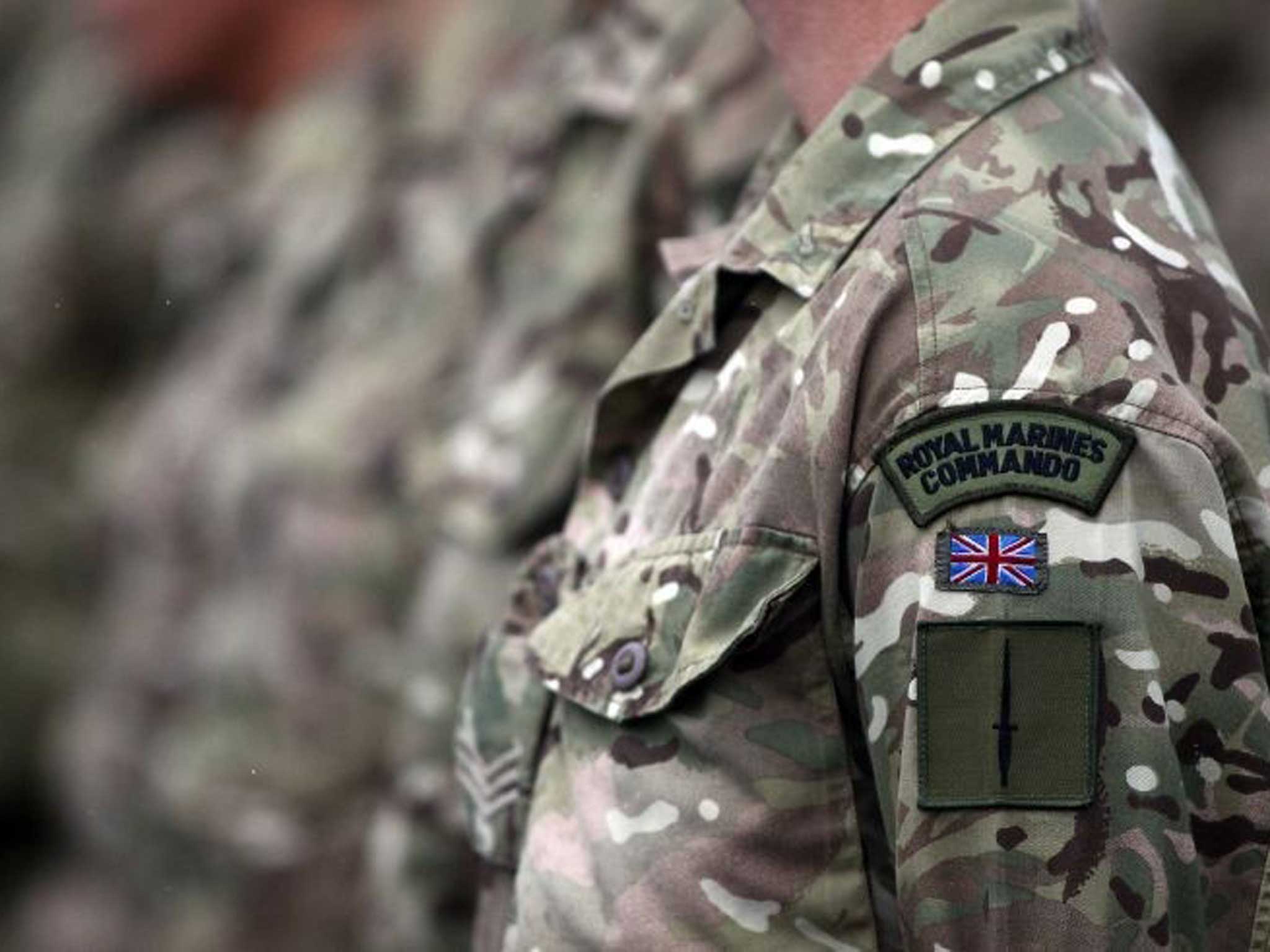Wilfred Owen and Marine A: as far apart as you can get
Calls for leniency for the convicted soldier are misguided – and do a disservice to those soldiers who hold on to their humanity in war circumstances

The idea of someone quoting Hamlet after committing a cold-blooded murder sounds like something from a bad crime novel. It would be even more improbable if the killer turned out to have had an audience, who didn't remonstrate or try to restrain him. But this is what happened in Afghanistan in September 2011, when a 39-year-old British sergeant known only as Marine A killed a wounded enemy with a single shot to the chest. He was convicted of murder by a military court on Friday and faces a mandatory life sentence. Two other Marines, known as B and C, were acquitted of murder after a trial which involved harrowing video evidence.
The murder conviction has sent shockwaves through the military. On a Sunday when people are remembering the dead of a century of warfare, there is a stunned recognition of the fact that a member of the British armed forces has been found guilty of a war crime. (Stunned and, in some instances, reluctant: a former Royal Marine commander called yesterday for leniency and refused to condemn a member of the Marines "family"). Spokesmen have done their best to mitigate the impact of the murder, accepting the verdict and describing the killing as an "isolated" incident. During his trial, Marine A said around 20 of his friends were killed in a six-month tour of Helmand, where the Taliban displayed body parts of his dead comrades as trophies.
The psychological impact of such experiences is devastating. It has caused long-term problems for some veterans of the Iraq and Afghanistan wars, who need support and treatment for PTSD. But the risk of reprisals against captured enemies and civilians in warfare is well understood, which is why they are forbidden by the Geneva Conventions. Marine A acknowledged as much when he told members of his patrol: "Obviously this doesn't go anywhere, fellas. I've just broken the Geneva Convention." He knew what he was doing, he knew it was illegal and he knew he needed to cover it up or he'd be in serious trouble. He also assumed he could rely on the discretion of his patrol comrades; the shooting emerged only because of a video inadvertently shot on Marine B's helmet camera, which he was using to record souvenir footage.
This was not a murder which happened in the heat of battle, when troops were in fear of their lives; there were eight men in the patrol and just one wounded insurgent. On the contrary, the marines sound relaxed and even amused on the audio tape, which was released last week. (Video evidence was held back by the court for fear of reprisals.) They casually discuss what to do with the man, who was seriously injured after an attack by an Apache helicopter. With a British observation balloon overhead, they drag the Afghan under tree cover, verbally abusing and kicking him. The man groans but when one marine asks whether anyone wants to give first aid to "this idiot", another replies "No" in a loud voice.
These are some of the most highly trained men in Britain's armed forces. Yet they talk about whether to shoot the Afghan in the head, an option rejected by Marine A as too "fucking obvious". Marine B pretends to help the wounded man in case anyone is watching, but then the overhead observers move away. Marine A finishes the Afghan with a shot to the chest, exclaiming: "There you are, shuffle off this mortal coil, you cunt. It's nothing you wouldn't do to us." The prosecution described the murder as "an execution".
The juxtaposition of Shakespeare and a toxic sexual insult is jarring, even if it's evidence only of how some of the playwright's most famous lines have become clichés. But it is ironic that Marine A quoted Hamlet, that most indecisive of characters, as he despatched his victim with brutal efficiency. It is as far removed as anyone could get from the image of British troops created by the soldier-poets of the First World War, who were haunted by memories of the men they had killed as well as the friends they had lost. Wilfred Owen and his fellow soldiers endured years of brutal conflict without losing their humanity, as we will be reminded next year when the centenary of the Great War's outbreak is commemorated in books, documentaries and ceremonies.
At least, that's what we like to think. Every war produces atrocities, from the Nazi concentration camps to the mass rape of German and Russian women at the end of the Second World War. It is one of the reasons I'm uncomfortable with the current habit of describing every member of British forces in Afghanistan as a hero, which devalues the meaning of the word; some people behave heroically under extreme pressure, others don't. That is why it is essential that politicians, generals and (as a last resort) the courts do everything they can to protect civilians and wounded combatants from the worst of human nature.
The UK government rightly supported the setting up of the International Criminal Court to identify, arrest and try those who aren't held to account by their own authorities. The rules don't just apply to warlords such as the former Liberian president Charles Taylor, who is currently serving a 50-year prison sentence for aiding and abetting war crimes and crimes against humanity. They must be applied with the same rigour to individuals like Marine A, which is why calls for leniency this weekend are misguided.
